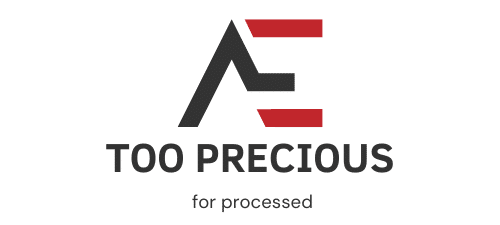What’s New in Phage Therapy as an Alternative to Antibiotics in the UK?

The problem of antibiotic resistance is an escalating global health issue. Traditional antibiotics are losing their grip on bacterial infections, making it an urgent need to explore new treatment approaches. One such promising alternative is phage therapy. Phages or bacteriophages are viruses that can particularly infect and kill bacteria. The scientific world and patients in the UK are increasingly turning their attention to this form of treatment. Are you wondering what’s new in phage therapy in the UK as an alternative to antibiotics? In this article, you will delve into the most recent clinical trials, research findings, and implementation of this innovative therapy.
Understanding the Concept and Potential of Phage Therapy
Phage therapy is not an entirely new concept. The idea dates back to the early 20th century. However, due to the discovery of antibiotics and some technological limitations, it was overlooked for many years. In the face of growing antibiotic resistance, there is renewed interest in phage therapy.
Dans le meme genre : Discover the best-kept secrets in the ultimate mystery box
Phages are tiny viruses that infect bacteria, replicate inside them, and then burst the bacterial cell, thereby killing it. Since phages are highly specific, they can target and kill specific bacteria without harming the beneficial ones. This specificity makes phage therapy a promising alternative to broad-spectrum antibiotics, which often wipe out both good and bad bacteria indiscriminately.
In the UK, the use of phage therapy has been less widespread than in other countries. However, recent advancements and a growing understanding of phages’ potential have led to an upsurge in interest in this therapy.
A voir aussi : Living as expat in portugal: explore top destinations and tales
Latest Research and Clinical Trials on Phage Therapy in the UK
There has been a significant increase in clinical trials and research studies investigating the efficacy and safety of phage therapy in the UK. Many of these studies can be found on scholarly databases such as PubMed, PMC, and CrossRef.
One memorable example is a clinical trial carried out by researchers at the University of Liverpool. This study explored the use of phages to treat Pseudomonas aeruginosa infections in cystic fibrosis patients. The results showed a reduction in bacterial load and an improvement in patients’ clinical condition.
Phage therapy clinical studies are also underway for other bacterial infections such as Staphylococcus aureus and Escherichia coli. The outcomes of these trials will undoubtedly contribute significantly to our understanding of the potential role of phage therapy in managing antibiotic-resistant infections.
The Role of Google Scholar in Phage Therapy Research
With the increasing demand for phage therapy research, platforms like Google Scholar have become indispensable tools for researchers and clinicians. Google Scholar is a web search engine that indexes scholarly literature across an array of publishing formats and disciplines.
Researchers often use Google Scholar to find articles related to phage therapy. It provides a broad view of the literature, including articles from interdisciplinary and international perspectives, and indexes content from academic publishers, professional societies, online repositories, universities, and other scholarly organizations.
Phage Therapy and Its Impact on Patients in the UK
The potential impact of phage therapy on patients in the UK is significant. Antibiotic-resistant infections pose a considerable threat to patient safety. In many cases, bacterial infections that were once easy to treat have become life-threatening due to antibiotic resistance.
Phage therapy offers a new hope for these patients. With its ability to target specific bacteria, phage therapy has the potential to treat infections that are currently untreatable with antibiotics. This could significantly improve patient outcomes and reduce mortality rates from antibiotic-resistant infections.
Challenges and Future of Phage Therapy in the UK
Despite the promising potential of phage therapy, there are still numerous challenges to overcome. These include regulatory hurdles, manufacturing difficulties, and the need for further clinical trials to establish efficacy and safety.
However, the UK is making strides to overcome these challenges. In 2020, the National Institute for Health and Care Excellence (NICE) provided its first-ever guidance on the use of phage therapy, paving the way for its wider adoption in the UK healthcare system.
Furthermore, the UK government has recognized the potential of phage therapy as part of its five-year national action plan on antimicrobial resistance. The plan outlines the steps the government will take to contribute to the fight against antimicrobial resistance, including support for innovative treatments like phage therapy.
In conclusion, while phage therapy is not yet a mainstream treatment option in the UK, research and development are rapidly advancing. The future looks promising for phage therapy as an effective and potentially life-saving alternative to antibiotics.
Phage Therapy: A Collaborative Approach to Tackle Antibiotic Resistance
Phage therapy is gaining momentum as a potent alternative to antibiotics. Its potential to tackle antibiotic resistance is being explored from multiple fronts involving a variety of disciplines, ranging from microbiology to clinical medicine. Collaborative efforts are focused on both understanding the functionality of phages and developing them as therapeutic agents.
The use of platforms like Google Scholar, PubMed, CrossRef, and PMC have played an instrumental role in bringing together the latest research outputs from across the globe. These platforms are streamlining search ads for scholarly literature on phage therapy, with free articles being made available to the global scientific community.
Efforts are also underway to standardise the production of therapeutic phages under Good Manufacturing Practice (GMP) conditions. Establishing GMP phages will be key for the wider acceptance and implementation of phage therapy in clinical settings.
Collaboration is not only present among scientists and medical professionals but also with regulatory bodies. For instance, the National Institute for Health and Care Excellence (NICE) is offering guidance on the use of phage therapy, thus helping to address regulatory concerns.
With antibiotic resistance on the rise, the need for alternative therapies is urgent. Collaborative efforts in understanding and harnessing phage therapy are an encouraging step towards meeting this need.
Conclusion: The Promise of Phage Therapy for the UK and Beyond
As antibiotic resistance continues to pose a severe threat to global health, the scientific community is in a race against time to find effective alternatives. Phage therapy, with its unique mechanism of action and specificity, presents a promising solution.
The UK, despite being a late adopter of phage therapy compared to some other countries, is now proactively pursuing this approach. The number of clinical trials investigating the potential of bacteriophage therapy against various bacterial pathogens like Staphylococcus aureus and Escherichia coli is increasing. The outcomes of these trials could significantly enhance our ability to treat infections that are currently untreatable with antibiotics.
Google Scholar and other academic databases like PubMed, PMC, and CrossRef are playing a pivotal role in facilitating access to the latest research outputs in the field of phage therapy. These platforms provide a wide array of literature, including free articles, thus promoting research collaboration and knowledge sharing.
While there are challenges involved, like regulatory issues and the need for GMP phages, steps are being taken to address them. The UK’s National Institute for Health and Care Excellence (NICE) has provided its first-ever guidance on the use of phage therapy, setting the path for its wider adoption in the future.
The UK government’s acknowledgement of phage therapy’s potential in its national action plan on antimicrobial resistance further demonstrates the country’s commitment to embracing this innovative treatment approach.
In conclusion, the future of phage therapy as an alternative to antibiotics in the UK is promising. With ongoing research, collaboration, and regulatory progress, it could become a game changer in the fight against antibiotic-resistant infections.
